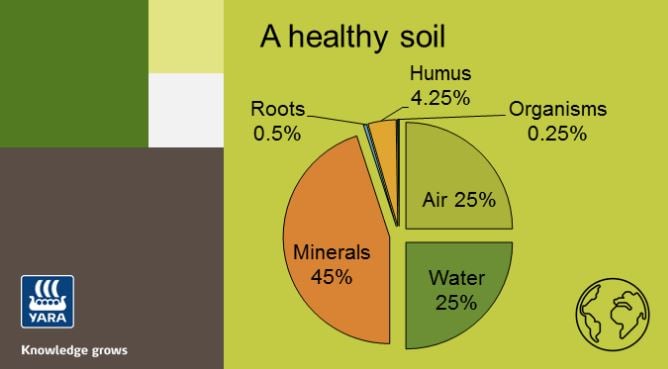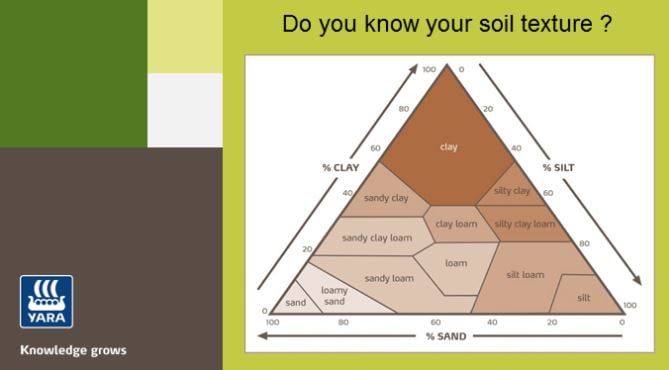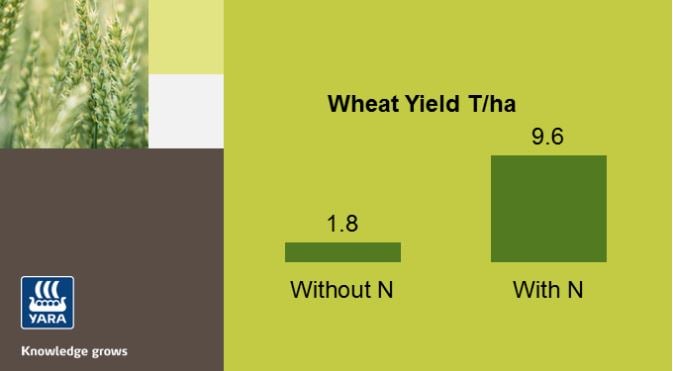20 things you didn't know about soils
Close to 55% of Irish and UK soils analysed by Yara Analytical Services are deficient in either Phosphate (P), Potash (K) or Magnesium (Mg).
These represent some of the key nutrients for healthy plant growth, according to Yara Ireland.
To mark World Soil Day, which took place on Monday last week, Yara released a number of facts to highlight the role of soils and the importance of correct soil management.
1. What should the ‘ideal’ soil contain?
The ‘ideal’ soil should contain a mixture of air, water, minerals and organic matter in the correct proportions.
This will allow the soil to function properly and supply the necessary nutrients for healthy plant growth.
2. Micro-organisms in the soil are important for nutrient cycling
Soil micro-organisms transform organic matter into plant available nutrients that can be absorbed or digested by the plant.
Interestingly, a tablespoon of soil has more micro-organisms than the whole population on earth.
3. Development of antibiotics aided by soil micro-organisms
Almost all of the antibiotics we take for the treatment or prevention of infections were obtained from soil micro-organisms.
4. A healthy soil contains 5t/ha of micro-organisms
A typical arable soil contains approximately 5t/ha of soil micro-organisms, which is the equivalent weight of close to 100 pigs/ha.
5. About 10% of the World’s CO2 emissions are stored in soil
Soil plays a key role in the carbon cycle, storing carbon as Soil Organic Matter. As well as this, soil can also be an important tool to help mitigate and adapt to climate change.
6. The 13 nutrients for plant growth are all supplied by soil
There is a total of 13 nutrients required for healthy plant growth, all of which are supplied by the soil.
The primary nutrients include Nitrogen, Phosphorus and Potassium, while plants also require Calcium, Magnesium, Sulphur, Boron, Zinc, Iron, Copper, Manganese, Molybdenum, Chlorine.
7. Soil pH has a huge influence on nutrient availability
The soils pH can have a huge effect on nutrient availability. A pH of between 6.0-6.5 is the optimum level for the availability of all nutrients.
8. Low soil organic matter limits availability of nutrients
The availability of nutrients can be limited if soil has a low level of organic matter content.
Tests have shown that the availability of all key nutrients is reduced if the organic matter content of the soil falls below the guideline of 4%.
9. Soil organic matter is crucial for soil fertility
Over 70% of UK arable soils analysed by Yara Analytical Services have less than 4% organic matter.
10. Avoid compaction – Soils need 25% air space to breath
To maintain a soil with 25% air, a good soil structure should be maintained which means avoiding compaction.
A good soil structure helps to maintain healthy deep roots and high nutrient efficiency, as well as reducing the environmental impact of applied nutrients.
11. Avoid waterlogging – Soils need 25% water not 100%
Waterlogged soils create a negative environmental impact through soil run-off or erosion which leads to the loss of valuable nutrients.
Meanwhile, waterlogging can also create anaerobic conditions that cause high emissions of the Green House Gas Nitrus Oxide (N2O)
12. Avoid soil erosion – It is not easily replaced
One inch of top soil can take more than 500 years to create. However it can be destroyed in a far shorter period.
As well as soil not being easily replace, soil erosion also causes a loss of nutrients and the pollution of watercourses.
13. Increased organic matter will help soil store more water
By increased the level of organic matter in your soil you can increase the capacity of water it can hold.
If one inch of rain was to fall on one acre it would equate to 100,000L. But, by increasing organic matter levels by 1% water storage will also increase by close to 75,000L.
14. Do you know your soil texture ?
The texture of your soil can influence soil structures and many other properties.
A soils texture can be calculated using the this chart below and a sample of your soil.
15. 45% of analysed soils are below pH 6.0 or above pH 7.5
30% of soils Yara Analytical Services analysed are below pH 6.0, while 15% are above a pH of 7.5.
The availability of Phosphate is significantly reduced in soils with pH levels within these categories.
16. Yara Analytical Services has analysed over 1.6m soil samples
Over the last 20 years Yara Analytical Services has analysed over 1.6m soil samples.
17. Balanced nutrition is essential – both macro and micro
All nutrients are required for optimum plant growth and a deficiency of any one, macro or micro, will cause reduced growth and yield.
18. Almost all Irish and UK soils are deficient in Selenium
99% of Irish soils are deficient in Selenium which is a key nutrient for human and animal health.
19. Soil mineral reserves alone cannot sustain productivity
The agricultural productivity of a soil cannot be sustained by the soils mineral reserves alone.
20. The Nation that destroys its soil destroys itself
The importance of taking care of soil has long been recognised and throughout history many civilisations have understood the vital importance of soils.
“The Nation that destroys its soil destroys itself,” – Franklin D Roosevelt, 1937.
*The above 20 facts were supplied by Yara Ireland.














